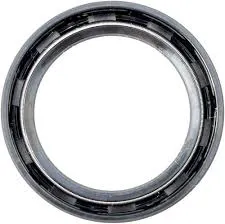12 月 . 04, 2024 09:15 Back to list
neoprene foam gasket
Neoprene Foam Gaskets Versatile Solutions for Sealing Needs
Neoprene foam gaskets are widely recognized for their versatile applications across various industries. Known for their excellent durability and flexibility, these gaskets provide a reliable solution for sealing, insulation, and protection. This article will delve into the unique properties of neoprene foam gaskets, their applications, and their advantages over other sealing materials.
What is Neoprene Foam?
Neoprene, a synthetic rubber, was developed in the 1930s and has since become one of the most commonly used materials in industrial applications. Neoprene foam is created by incorporating nitrogen into neoprene, resulting in an expanded structure that provides superior cushioning and insulation properties. The foam can be produced in various densities and thicknesses, making it adaptable to diverse sealing requirements.
Key Properties of Neoprene Foam Gaskets
1. Weather Resistance Neoprene exhibits excellent resistance to environmental factors such as sunlight, ozone, and weather changes. This attribute makes neoprene foam gaskets suitable for both indoor and outdoor applications.
2. Temperature Tolerance Neoprene foam can withstand a wide range of temperatures, typically from -40°F to 200°F (-40°C to 93°C). This temperature resilience allows the gaskets to maintain their integrity in demanding environments.
3. Chemical Resistance Neoprene foam has a high resistance to various chemicals, oils, and solvents. This makes it suitable for use in automotive, marine, and industrial settings where exposure to such substances is common.
4. Compression Set Resistance This property refers to the material's ability to return to its original shape after being compressed. Neoprene foam gaskets exhibit low compression set, ensuring long-lasting performance and effective sealing.
5. Sound and Vibration Dampening The resilient nature of neoprene foam aids in absorbing sound and vibrations, making it an excellent choice for applications requiring noise reduction.
Applications of Neoprene Foam Gaskets
Neoprene foam gaskets are employed in a variety of sectors, including
1. Automotive Industry
neoprene foam gasket

In the automotive sector, neoprene foam gaskets are used in weather strips, door seals, and engine applications. Their ability to withstand extreme temperatures and resist oil and fuel exposure makes them indispensable for providing airtight and watertight seals.
2. Construction and Building
In construction, neoprene foam gaskets serve as sealing materials for windows, doors, and HVAC systems. They enhance energy efficiency by preventing air leaks and are also utilized in roofing applications to ensure long-lasting weather tightness.
3. Electronics
In the electronics field, these gaskets provide sealing for electronic enclosures, protecting sensitive components from dust, moisture, and electromagnetic interference. Their flexibility allows for custom shapes that fit various designs.
4. Marine Applications
Boat manufacturers utilize neoprene foam gaskets for hatches, deck fittings, and rod holders. Due to their water resistance and stability under saltwater conditions, they enhance the durability and functionality of marine vessels.
5. Industrial Uses
Many industrial applications leverage neoprene foam gaskets for machinery, equipment, and piping systems. They help in minimizing leaks and vibrations, leading to improved operational efficiency.
Advantages Over Other Materials
When compared to other gasket materials such as cork, silicone, or rubber, neoprene foam offers several distinct advantages. The combination of weather resistance, chemical tolerance, and durability makes neoprene a superior choice for long-term applications. Additionally, the lightweight nature of neoprene foam reduces the overall weight of assemblies, which can be critical in some industries.
Conclusion
Neoprene foam gaskets emerge as a robust and versatile solution for a wide range of sealing challenges. Their unique properties, combined with diverse applications, contribute to their popularity across many sectors. As technology advances and industries evolve, neoprene foam gaskets are likely to remain an essential component of effective sealing solutions, ensuring durability and performance for years to come. Whether for automotive, marine, or electronic applications, these gaskets continue to provide reliable service and meet the demanding needs of modern industries.